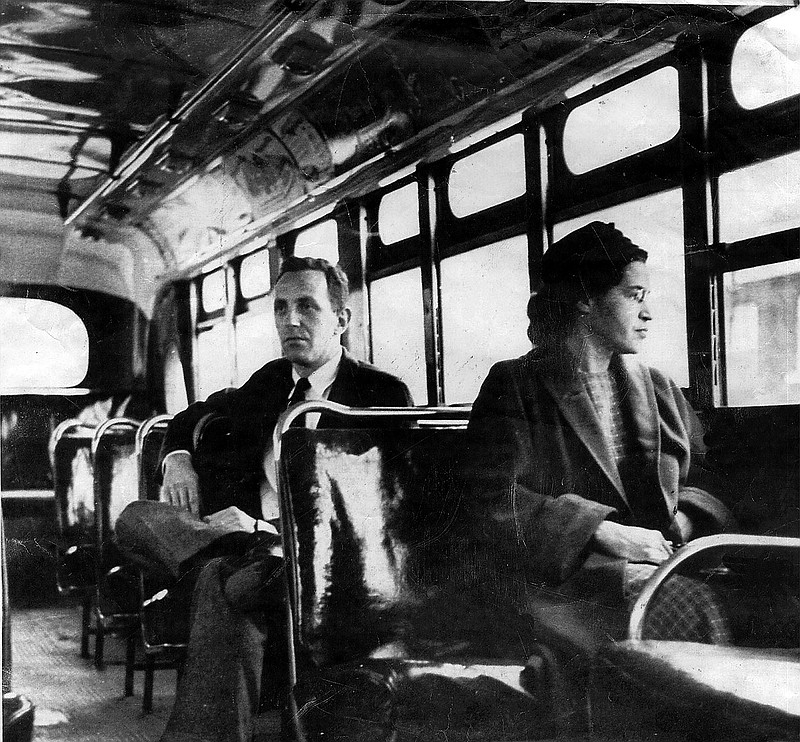MONTGOMERY, Ala. (AP) - EDITOR'S NOTE: Rosa Parks' arrest for refusing to give up her seat to a white man on Dec. 1, 1955 - the start of the Montgomery bus boycott - got relatively little attention, initially. The Montgomery Advertiser noted it briefly the following day, and covered it in more detail Dec. 4 as protesters began to organize the boycott.
The story went national Dec. 5, when The Associated Press wrote of the plan to make Parks the test case for laws segregating public transportation.
On the 60th anniversary of Parks' arrest, the AP is making available its initial story on the boycott.
___
MONTGOMERY, Ala. (AP) -- A court test of segregated transportation loomed today following the arrest of a Negro who refused to move to the colored section of a city bus.
While thousands of other Negroes boycotted Montgomery city lines in protest, Mrs. Rosa Parks was fined $14 in Police Court today for having disregarded last Thursday a driver's order to move to the rear of a bus. Negro passengers ride in the rear of buses here, white passengers in front under a municipal segregation ordinance.
An emotional crowd of Negroes, estimated by the police at 5,000, roared approval tonight at a meeting to continue the boycott.
Spokesmen said the boycott would continue until people who rode buses were no longer "intimidated, embarrassed and coerced." They said a "delegation of citizens" was ready to help city and bus line officials develop a program that would be "satisfactory and equitable."
Mrs. Parks appealed her fine and was released under $100 bond signed by an attorney, Fred Gray, and a former state president of the National Association for the Advancement of Colored People, E.D. Nixon.
Mr. Gray and Charles Lanford, another Negro lawyer representing the 42-year-old department store seamstress, refused to say whether they planned to attack the constitutionality of segregation laws affecting public transportation.
The Supreme Court in Washington already has before it a test case against segregation on buses operating in Columbia, S.C. The United States Court of Appeals in Richmond, Va., has ruled in this case that segregation must be ended. If the Supreme Court sustains the decision, the effect will be to outlaw segregation in all states and cities.
Mrs. Parks was charged first with violating a city ordinance that gives bus drivers police powers to enforce racial segregation. But at the request of City Attorney Eugene Loe, the warrant was amended to a charge of violation of a similar state law. The state statute authorizes bus companies to provide and enforce separate facilities for whites and Negroes. Violation is punishable by a maximum fine of $500.
Other Negroes by the thousands, meanwhile, found other means of transportation or stayed home today in an organized boycott of City Lines Buses, operated by a subsidiary of National City Lines at Chicago.
The manager, J.H. Bagley, estimated that "80 or maybe 90 percent" of the Negroes who normally used the buses had joined the boycott. He said "several thousand" Negroes rode the buses on a normal day.
